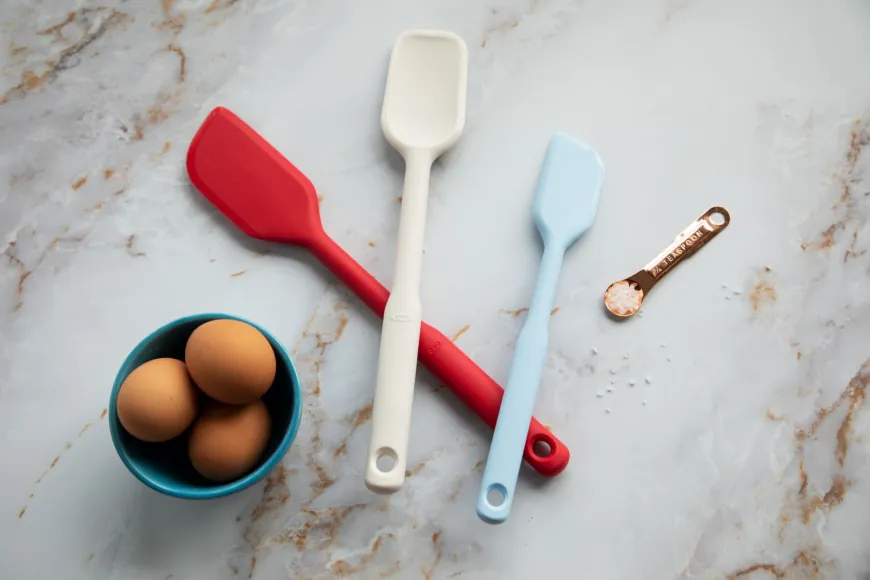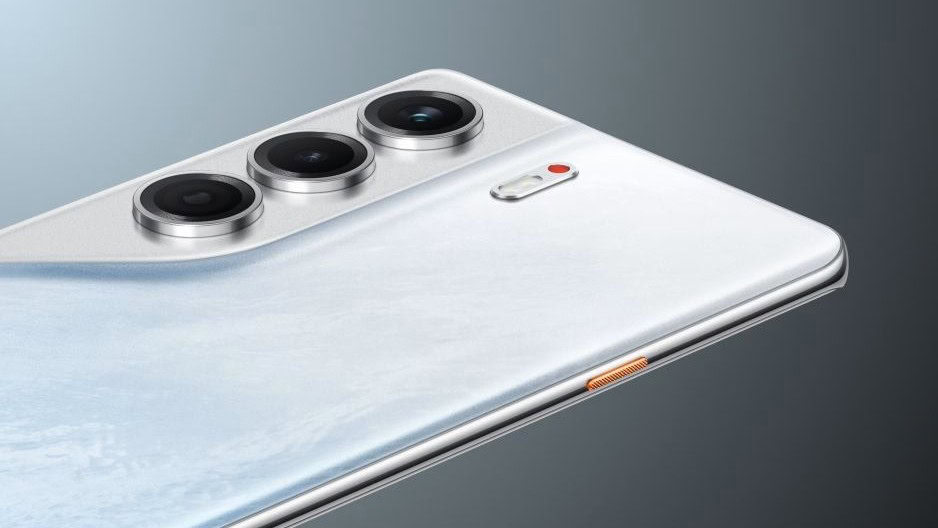Best Spatula for Non-Stick Cookware – No Scratches!
Non-stick cookware has become a kitchen essential for many households. It provides an effortless cooking experience, reduces the amount of oil needed, and simplifies cleanup.

Non-stick cookware has become a kitchen essential for many households. It provides an effortless cooking experience, reduces the amount of oil needed, and simplifies cleanup. However, maintaining the longevity of non-stick pans and pots depends largely on the utensils used. Using the best spatula designed specifically for non-stick surfaces is crucial. These spatulas are gentle, yet effective, and ensure that your non-stick cookware remains scratch-free while providing a seamless cooking experience.
Importance of Choosing the Right Spatula for Non-Stick Cookware
Non-stick surfaces are coated with materials like Teflon or ceramic. While these coatings make cooking and cleaning easier, they are also more susceptible to damage. Using metal or hard utensils on non-stick surfaces can lead to scratches, which degrade the coating over time. These scratches not only ruin the smoothness of the pan but can also release harmful particles into your food. Therefore, selecting the best spatula for non-stick cookware is essential to maintaining the quality of your kitchen tools.
A spatula designed specifically for non-stick surfaces is typically made from silicone, nylon, or other soft materials. These spatulas are flexible enough to glide smoothly over the surface without causing damage. They also provide enough strength to flip, stir, or scrape food efficiently. By using the right spatula, you can extend the lifespan of your non-stick cookware and enjoy a safer, healthier cooking experience.
Materials to Look for in a Non-Stick Spatula
The material of the spatula is one of the most important factors when choosing the best spatula for non-stick cookware. Below are the most common materials used for spatulas that are safe for non-stick surfaces:
-
Silicone: Silicone spatulas are a top choice for non-stick cookware. They are heat-resistant, flexible, and gentle on the surface. Silicone is also non-reactive, which means it won't absorb odors or stains from food. A silicone spatula can withstand high heat, making it perfect for frying, sautéing, and baking.
-
Nylon: Nylon spatulas are also popular for use with non-stick cookware. They are slightly firmer than silicone, making them better suited for tasks that require more strength, like flipping heavier foods. Nylon is heat-resistant but typically not as durable as silicone. However, a high-quality nylon spatula can still provide excellent performance.
-
Wood: Wooden spatulas are another great option for non-stick cookware. Wood is naturally soft, so it won’t scratch the surface. Wooden utensils are also long-lasting and durable when properly maintained. However, they require more care, as wood can absorb moisture and may need regular oiling to prevent cracking.
-
Plastic: While some plastic spatulas are suitable for non-stick surfaces, they tend to be less heat-resistant than silicone or nylon. If you choose a plastic spatula, make sure it is labeled as safe for high-heat use.
Features of the Best Spatula for Non-Stick Cookware
Choosing the best spatula for non-stick cookware involves more than just the material. Several other features make a spatula more suitable for use with non-stick surfaces:
-
Heat Resistance: One of the most important features to look for is heat resistance. A spatula should withstand the high temperatures common in cooking, especially when used for frying or grilling. Silicone spatulas, in particular, can often handle heat up to 450°F (232°C) or higher.
-
Flexibility: Flexibility is important for tasks like scraping the sides of a pan or flipping delicate foods such as eggs or pancakes. A flexible spatula ensures that you can handle food with ease, while still being gentle on the non-stick surface.
-
Ergonomic Design: A spatula should have a comfortable handle that allows for a secure grip. An ergonomic design helps reduce hand fatigue during extended use and gives you better control over the spatula.
-
Non-Slip Grip: Some spatulas come with handles made from non-slip materials, such as rubber or silicone. These grips ensure that the spatula doesn’t slip from your hand, even when handling greasy or oily foods.
-
Dishwasher Safe: For added convenience, choose a spatula that is dishwasher-safe. This makes cleaning up after cooking easier and more hygienic.
Benefits of Using the Best Spatula for Non-Stick Cookware
Using the best spatula for non-stick cookware offers several advantages:
-
Prevents Scratches: The most obvious benefit is that it protects the surface of your non-stick pans. Scratches can compromise the effectiveness of the non-stick coating, making it harder to cook and clean.
-
Extended Lifespan of Cookware: By using the proper utensils, you can extend the lifespan of your non-stick cookware. High-quality non-stick pans can last for years if treated correctly, saving you money in the long run.
-
Healthier Cooking: Non-stick pans are often used for healthier cooking methods, as they require less oil. A spatula designed for non-stick surfaces ensures that you can maintain these benefits without damaging the pan. Furthermore, avoiding scratches reduces the risk of ingesting any harmful particles that could come from the non-stick coating.
-
Versatility in Cooking: The best spatula allows you to handle a variety of cooking tasks, from flipping pancakes to sautéing vegetables. Its design ensures that you can perform these tasks efficiently, without damaging your cookware.
How to Care for Your Spatula and Non-Stick Cookware
Even the best spatula requires proper care to ensure it stays in good condition and continues to protect your non-stick cookware. Here are some tips to care for both your spatula and non-stick pans:
-
Hand Washing: While many spatulas are dishwasher-safe, hand washing can help prolong their lifespan. Use mild soap and warm water to clean your spatula and non-stick cookware.
-
Avoid High Heat: Although most spatulas for non-stick cookware are heat-resistant, avoid exposing them to extremely high temperatures for prolonged periods. This can cause the material to degrade over time.
-
Store Properly: Store your spatulas in a way that prevents bending or warping. Avoid placing heavy items on top of them, which could damage their shape.
-
Season Your Non-Stick Pans: Even though non-stick pans don’t require the same seasoning as cast iron, a light coating of oil after washing can help maintain the non-stick surface. This also ensures that your spatula glides smoothly over the surface.
Conclusion
Investing in the best spatula for non-stick cookware is a simple yet crucial step in preserving the quality and longevity of your kitchen tools. With materials like silicone, nylon, and wood, you can ensure that your spatula is gentle on your non-stick surfaces while providing the strength needed for cooking tasks.
A well-designed spatula not only protects your cookware but also enhances your cooking experience. By choosing a spatula that is heat-resistant, flexible, and comfortable to use, you can enjoy seamless cooking and easy cleanup. The right spatula makes all the difference in your kitchen, ensuring that both your food and cookware are treated with care.
Take the time to select a spatula that meets your needs and matches the quality of your non-stick cookware. This small investment will result in long-term benefits, providing you with efficient, scratch-free cooking for years to come.
What's Your Reaction?
 Like
0
Like
0
 Dislike
0
Dislike
0
 Love
0
Love
0
 Funny
0
Funny
0
 Angry
0
Angry
0
 Sad
0
Sad
0
 Wow
0
Wow
0























































